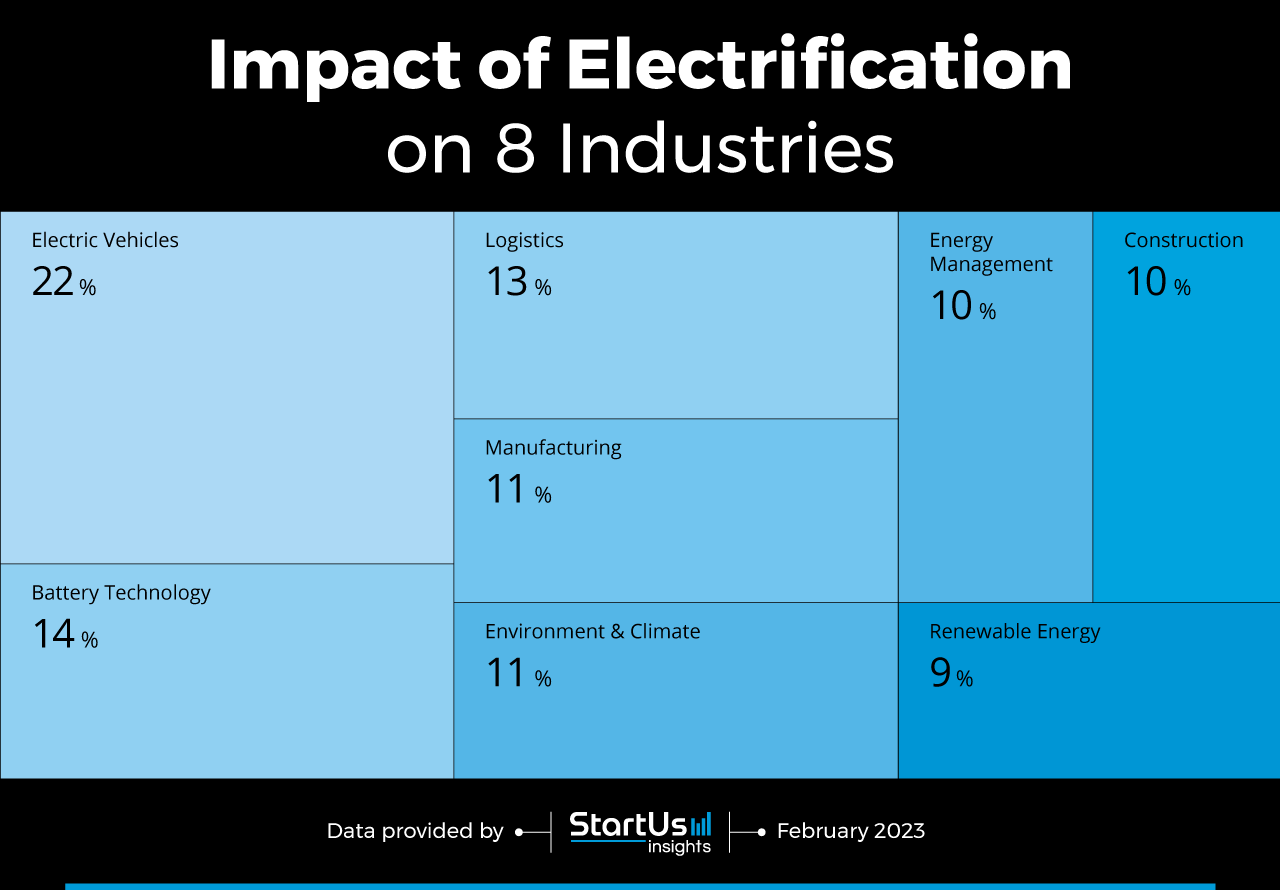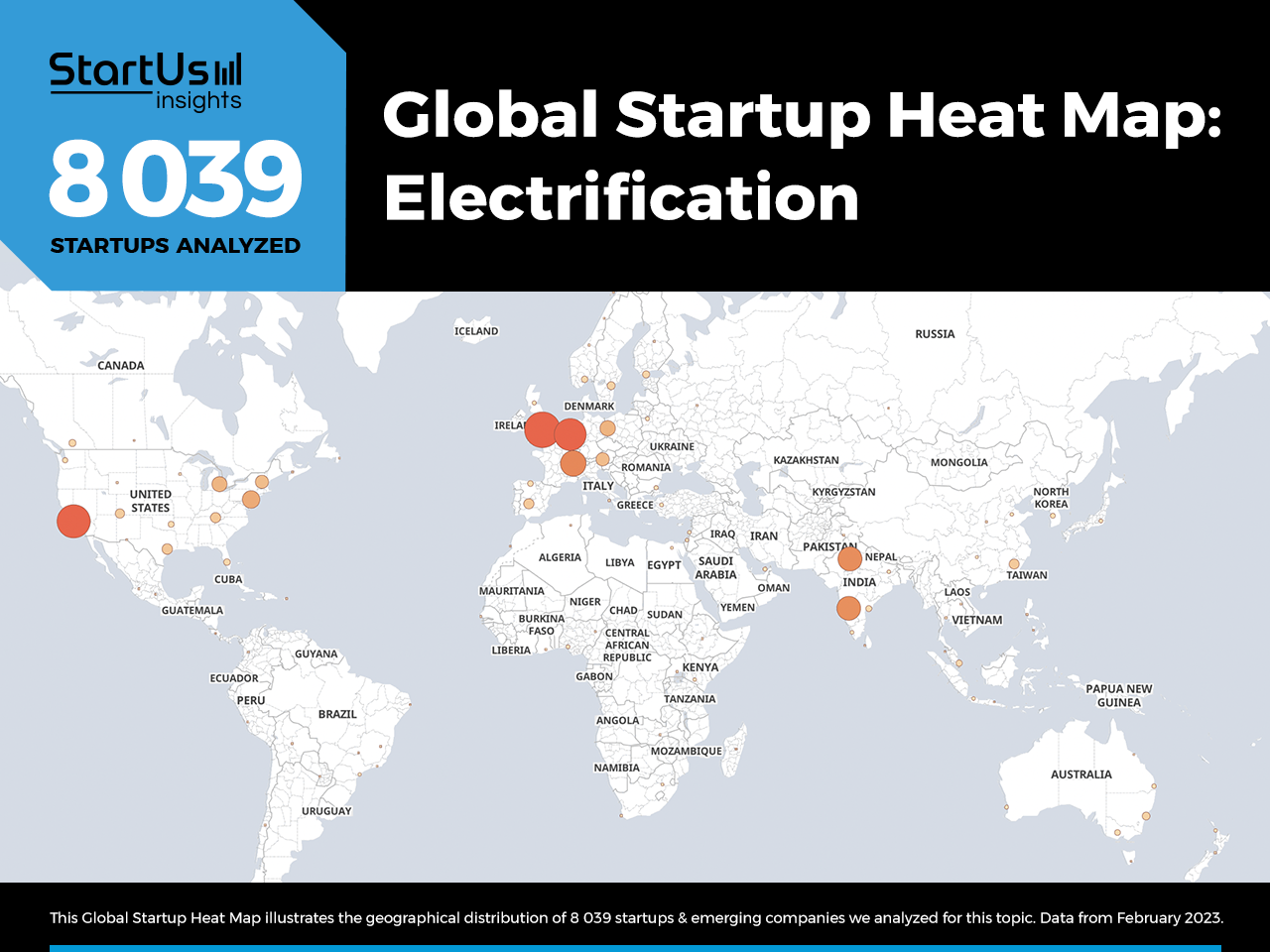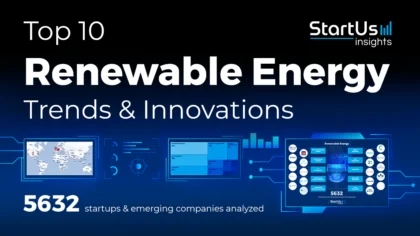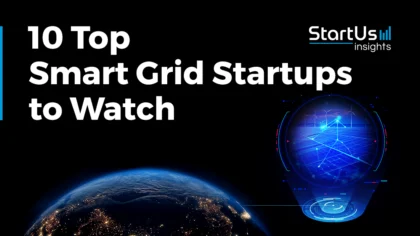Electrification of industrial and commercial sectors is critical in reducing anthropogenic carbon emissions and transitioning to net-zero operations. For this, businesses use renewable energy sources, convert or replace fossil fuel-powered assets, leverage electric vehicles (EVs), and more. In this data-driven report, we give you innovation insights based on our analysis of 8039 electrification startups & technologies so that you do not miss out on emerging solutions. These electrification solutions allow you to improve energy efficiency and reduce your company’s carbon footprint. Read more to explore the top electrification examples across 8 industries and how they advance your business.
Tree Map reveals Top Electrification Examples across 8 Industries
The Tree Map below illustrates electrification applications across 8 industries in 2023 and 2024. The rising interest in climate-friendly transport drives growth in electric vehicles and battery technologies. Novel battery technologies focus on improving energy density and safety to increase renewable energy adoption and industrial electrification.
Further, the logistics, manufacturing, and construction industries are shifting to electric fleets and assets to reduce their carbon footprint. On the other hand, renewable energy and energy management businesses work to improve grid resilience while increasing grid capacity. As a result, electrification has a positive impact on climate change and the environment.
Global Startup Heat Map covers 8039 Electrification Startups & Scaleups
The Global Startup Heat Map below highlights the global distribution of the 8039 exemplary startups & scaleups that we analyzed for this research. Created through the StartUs Insights Discovery Platform that covers 3 790 000+ startups & scaleups globally, the Heat Map reveals that the UK & US have a high concentration of electrification startups.
Below, you get to meet 8 out of these 8039 promising startups & scaleups as well as the solutions they develop. These 8 startups are hand-picked based on criteria such as founding year, location, funding raised, & more. Depending on your specific needs, your top picks might look entirely different.
Examples of Electrification across 8 Industries in 2023 & 2024
1. Electric Vehicles
The automobile and mobility industries contribute to massive amounts of carbon dioxide and carbon monoxide due to petrol and diesel combustion. That is why electrification primarily impacts these industries where auto manufacturers are building more electric vehicles while mobility providers integrate them into their offerings. As a result, governments and urban cities are able to reduce the overall carbon footprint.
Startups also build decentralized and centralized charging infrastructures for the quick adoption of EVs. Apart from decarbonizing mobility, electric vehicles are crucial for demand-side management as electric grids transition to cleaner, renewable energy sources.
MarsCharge manufactures an Advanced EV Charger
MarsCharge is a US-based startup that makes an advanced EV charger. The startup’s proprietary technology, FlexiCharging, allows its chargers to switch between level-1, level-2, and level-3 charging modes. This enables charging stations and households to power all types of EVs with a single charging outlet.
Additionally, MarsCharge’s charging management system leverages charging algorithms to optimize charging patterns for battery pack longevity. Further, the startup’s other solution, SnapCharge, connects multiple chargers into decentralized microgrid systems. It also supports dual bi-directional energy flow for improved power distribution.
2. Battery Technology
The intermittency of renewable energy sources hinders the transition to cleaner power grids. To tackle this issue, startups provide grid-scale and large-volume batteries for energy storage services and energy demand management. Further, battery manufacturers integrate low-carbon materials and processes to reduce their carbon footprint without compromising battery performance.
Advances in nanotechnology and solid-state batteries further enable manufacturers to improve energy density and safety. While Lithium-ion batteries electrify most industrial operations and EVs, Sodium-ion and Lithium-Sulphur batteries also are efficient candidates to power industrial operations.
Sicona Battery Technologies develops High-Performance Battery Materials
Sicona Battery Technologies is an Australian startup that offers high-performance battery materials. The startup utilizes off-the-shelf equipment along with a scalable and efficient manufacturing process to produce its anode materials for Lithium-ion batteries.
Its silicon-composite battery anode technology features higher capacity and energy density than conventional graphite anodes. Moreover, the startup uses a hydrophilic-based binder in its anodes to enhance conductivity and enable self-healing properties. Electric mobility and renewable energy companies use this anode technology.
3. Logistics
Similar to e-mobility, transport electrification significantly reduces carbon emissions associated with global supply chains and forwarding networks. Last-mile deliveries are the most expensive and environmentally deteriorative segment in supply chains. By using electric vehicle fleets, logistics companies are able to significantly reduce carbon emissions.
Many startups also develop EVs tailored for freight forwarding as well as first and middle-mile transport. Further, some startups offer EV conversion or retrofitting services to mitigate the massive capital expenses required for EV integration. This allows logistics companies and freight forwarders to reduce their carbon footprint and increase asset lifetime.
REARQ provides Electric Vehicle Conversion
REARQ is a Swedish startup that converts conventional logistics trucks into electric fleets. For this, the startup leverages modular lithium batteries for flexible range options and offers an integrated box with electric refrigeration for improved energy efficiency. REARQ also allows logistics businesses to add solar panels to transition to clean mobility.
Further, it provides AI-enabled fleet management software to optimize operations and enable a connected vehicle ecosystem. Altogether, the startup extends the service life of older vehicles while reducing environmental impacts.
4. Manufacturing
Unlike most industries, the manufacturing sector finds numerous opportunities to electrify its operations. For example, leveraging large-scale energy storage systems instead of backup generators or battery electric vehicles (BEVs) for material handling. These, among other solutions, enable manufacturers to reduce their dependence on carbon-heavy fuels and shift to low-carbon operations and products.
Novel startups also develop cost-effective means to generate heat energy through electric systems, thus replacing conventional fossil fuel combustion. Lastly, increasing the energy efficiency of electric motors and the continuous reduction in renewable energy costs make industrial electrification profitable for manufacturers.
Aepnus Technology advances Electrified Chemicals Manufacturing
Aepnus Technology is a US-based startup that enables electrified chemicals manufacturing. The startup’s low-cost electrolysis equipment electrifies and decarbonizes commodity chemicals production. This includes salts of Lithium, Sodium, ternary cathode materials, hydrochloric acid, and caustic soda.
At present, the startup electrolytically converts Lithium and Sodium Sulfate into Lithium and Sodium Hydroxide for battery recycling and battery materials processing. This reduces the carbon footprint associated with battery manufacturing.

5. Environment & Climate
Clean electricity grids powered by renewable energy sources allow businesses and households to reduce their carbon footprint and ensure net zero. Moreover, such an approach greatly reduces greenhouse gas emissions generated by energy consumption. To facilitate the electrification of industrial, commercial, and household operations, startups create renewable energy generation solutions.
Off-grid renewable energy sources allow households to minimize their dependence on electric grids while large-scale solar and wind farms power more energy-intensive operations. Electrification startups also offer energy-efficient integrations to improve the energy efficiency of assets. These solutions allow all stakeholders to minimize their environmental impacts without conflicting economic development through climate-sensitive advances.
ETA Green Power creates a High-Density Electric Drive System
ETA Green Power is a UK-based startup that makes Motor SLV 120, a high-density electric drive system for off-highway applications. The startup’s proprietary electric motor topology increases efficiency and reduces manufacturing costs while ensuring high magnetics.
ETA Green Power also offers a controller, Controller MCX 130, for its motor. They together replace mechanical and hydraulic drive systems to remove dependence on fossil fuels. The startup’s solutions find use in mowers, mini excavators, motorbikes, hedge cutters, and more.
6. Energy Management
Poor energy management while integrating renewable energy sources and EVs into energy infrastructures may lead to grid downtimes and capital loss. That is why many electrification solutions, including EVs, feature in-built energy management solutions. Smart grids leverage energy consumption data to forecast demand for better energy management. Through this, energy companies are able to direct energy demand to off-peak hours.
Therefore, the data from smart meters, battery management systems, and other energy monitoring solutions improve grid performance and reduce blackouts. As more and more assets connect to electric grids, this data becomes even more critical to ensure efficient grid operations.
Audacious Energy aids Demand-Side Management
Audacious Energy is a Canadian startup that facilitates energy demand-side management. The startup uses second-life batteries and appliance control software to balance energy loads in microgrids. Audacious Energy also develops solar-powered microgrids for farmers. With its energy management solution, farmers are thus able to better monitor loads and avoid grid downtime with over-surge alerts.
7. Construction
The construction sector utilizes various heavy assets and they lead to energy-intensive operations. Since diesel is the main fuel in use, construction processes leave behind nitrous oxides and carbon dioxide, accelerating climate change. The electrification of construction reduces these emissions and improves energy efficiency, reducing costs.
For this, startups develop electrified on-site assets, processes, and fleets. They include electric hammers, diggers, and even electrified manufacturing for construction materials. Construction electrification significantly improves the quality of life in cities while increasing eco-consumer appeal for projects.
Limach offers Electric Construction Equipment
Limach is a Dutch startup that provides electric construction equipment. The startup rebuilds or retrofits traditional excavators with battery packs, electric-hydraulic drive lines, and advanced electronic systems to sell them as electrified assets. Moreover, Limach uses low-voltage batteries to ensure the operational safety of its equipment. Construction companies utilize emission-free excavators to improve site safety and sustainability.
8. Renewable Energy
Increased adoption of renewable energy sources is vital in moving towards net-zero and ultimately a zero-carbon economy. However, the intermittency of such resources, like solar and wind energy, is what slows down this transition. To tackle this issue, startups and energy companies are leveraging energy storage systems (ESSs), EVs, and virtual power plants (VPPs) along with intelligent grids.
Through these solutions, renewable energy producers and suppliers are able to improve energy management. Further, off-grid renewable energy generation systems allow households and remote assets to generate electricity and store it for future needs, reducing dependence on electric grids.
Flower builds a Virtual Power Plant
Flower is a Swedish startup that maintains a virtual power plant to accelerate the energy transition. The startup’s hardware-agnostic platform, Power Refinery, combines advanced algorithms and cloud computing. It balances energy demands by aiding energy trading between consumers and producers. This allows energy producers to ensure competitive pricing while enabling energy companies to mitigate the effects of the intermittency of renewable energy sources.
Discover All Electrification Startups
Advances in battery technologies, energy generation, and smart grids increase electrification across industries. Electric air mobility also gains momentum in the e-mobility sector. Industrial electrification will further require low-cost solutions to fully remove fossil-fuel-powered assets and transition to cleaner operations. Therefore, electric retrofitting solutions will empower industrial applications till renewable energy costs come down and electric assets become cost-effective. Get in touch to identify specific electrification startups & solutions that advance your business!



![Dive into the Top 10 Energy Industry Trends and Innovations [2025]](https://www.startus-insights.com/wp-content/uploads/2025/03/Energy-Trend-SharedImg-StartUs-Insights-noresize-420x236.webp)






